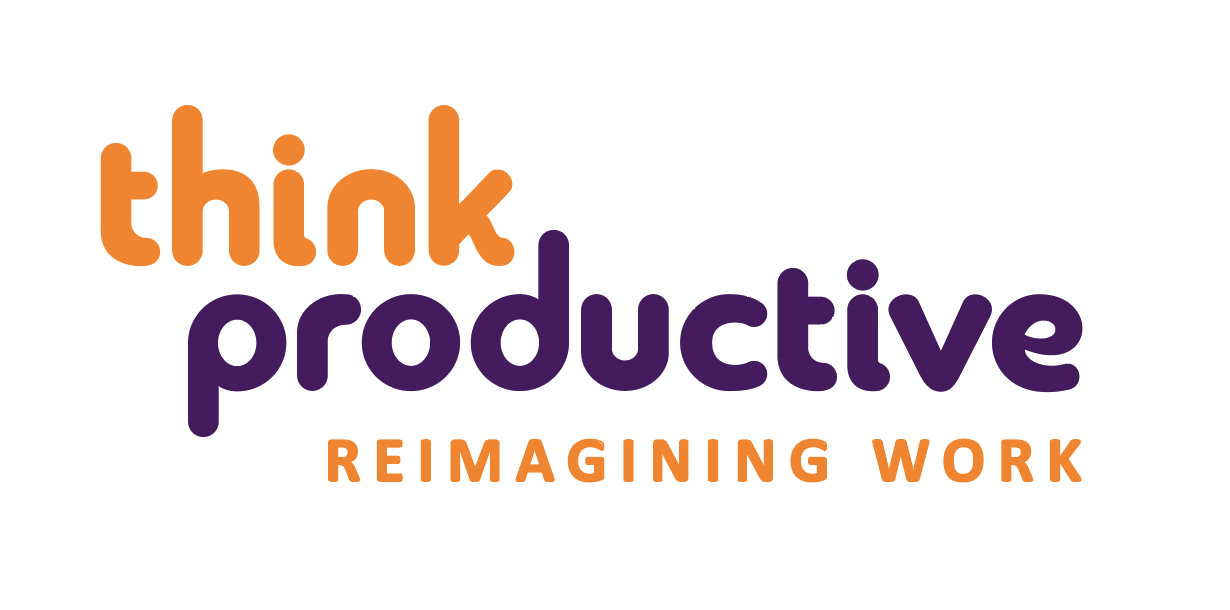This month is the scariest one so far. Not the scariest month in my year of experiments (trust me, I know what’s to come in May and a couple of the later months!) but the scariest one so far. More scary for me than only checking my emails on a Friday for a month. And scarier than making decisions by dice.
This month, my experiment is very simple. I will work for 60 minutes a day, seven days a week. And for the rest of the time, I will be officially and practically out of “work mode”. 60 minutes a day gives me seven hours a week of work. That means 161 out of the 168 hours in a week are to be filled with “non-work” activities.
Sounds like bliss, so why is this scary?
So first’s the easy one: the “work-time” one. Every day, just as I begin my work, the deadline will be staring at me, the clock counting down. There won’t be a minute to lose. The volume of emails will be the same, the demands will be the same and I therefore expect this month to be a huge test of my delegation skills and more importantly my ability to ruthlessly say no. Not a minute to lose, not a second to spare.
The second reason this month is scary is more complicated: it’s about the “non-work” time. Of the 161 hours remaining in my week, let’s say I sleep 8 hours a night. That leaves me with 105 hours to spend on “other stuff”. On anything other than work. What the hell do I do to fill all that time?! My instinct will be to create, to problem-solve, to…work.
What’s my hypothesis?
There are really two lots of hypotheses I’m testing out this month: the work ones and the non-work ones. Again, let’s start with the easy part…
 1. An hour a day, utilising extreme productivity techniques, might be enough.
1. An hour a day, utilising extreme productivity techniques, might be enough.
Emailing once a week was actually OK. When I have time off, things don’t collapse. The 80-20 rule tells us moments of flow are fleeting and extremely powerful. Can I be so ruthless as to get into the flow quickly each day, and even more ruthlessly avoid sweating the small stuff? We will see. And as I learned in my Email Friday experiment, to some extent your own flow can come at the hindrance, annoyance and inconvenience of others, so I am already nervous about the delegation this may require.
2. None of us are as productive as we could possibly be. There’s always more room for improvement.
As you might know about me already, I don’t really believe in perfection, or perfect systems. I also know that even those who have spent A LOT of time thinking, living and breathing productivity and writing books on the subject (four years and counting thinking about little else, day and night), there is room for improvement and lazy habits to break. So this month is an opportunity to publicly commit to “upping my own game” and learn from the questioning and tweaking of my own habits.
If I can achieve things in 7 hours a week, I have some bigger questions to ask about why and how I do what I do. Which leads us nicely to the complicated part of this month’s experiment…
3. The idea we should “work to live, not live to work” is deeply flawed
This month is really about exploring the “non-work”, the boundary between “work” and “life” and perhaps, more philosophically, it’s about the search for meaning and experience and where we derive it from. I enjoy my work, I feel like I have a decent social life (and as an introvert, I usually choose quiet time over more nights out anyway!) and having always said I was working hard now in order to relax more later on, perhaps I’ve been living a humungous lie all this time. Perhaps I need work to feel happy or to experience meaning and control in my life. Perhaps I’m.. addicted to work? Or perhaps working hard and being passionate about it is ultimately more interesting and important than doing something you hate for 40 hours a week. I hope I’m closer to answers on this by the 31st March.
4. “Work-Life Balance” is a vague and horrible term that means everything and nothing
Work-life balance is a bit of a myth: we only have one brain, so the idea of switching work off and home on is old fashioned in a knowledge-based economy where we use our brains. And even the notion of work-life balances or boundaries creates the assumption that we should put on a uniform and pretend to be someone else at work, discarding our real selves or our real motivations. To do this is to spend 40 hours a week, for 40 years, in denial and I value authenticity too highly for that.
5. Your wellbeing and happiness your job, not your employer’s
Work-life balance is usually addressed so badly by companies because it becomes an inauthentic conversation. The employer pretends they really care about results not hours, when really they want to bleed you dry. They talk about flexible working, when what they really want is you still answering emails at 11pm and having someone else pick the kids up not you. The world has changed, so have workplaces. My own view is that smoothies and gym memberships are not enough to solve this. But the reason these relationship conversations between worker and boss are so inauthentic is because the boss doesn’t know what else to suggest. Companies lack commitment or ideas. The happiest people in jobs are those that create value, realise their value and ask to be valued in the way that works for them. In order to know what to ask for, you have to design the life you want first, then the job to fit around it, not the other way around.
As for me, I am my own boss, and whilst I have my moments, I generally manage myself wearing the hats of tyrant and harshest critic. So time to drink my own kool aid and give myself a break. Time to design my job around my… “non-work”. Did I say “non-work”? I meant “life”.
6. Well-being and happiness is your job
For so long, I’ve worked hard at my work. This month is part of my commitment to being kinder to myself and allowing myself to be the reasonable boss I like to think I am with everyone else, but the one that I rarely allow to manage myself with. And from this enhanced well-being and happiness, I know I’ll value myself more and probably be more productive too. So this month I’m going to work hard at “non-work”. I mean work hard at life. Or work easy at life. You get the idea.
Hopes and fears for this month
 One fear in even putting this subject out there is that for many people, this is going to seem like an awful and cringey first world problem (“woe is me, able to take the decision to work only an hour a day, yet searching for happiness and meaning”). And especially in talking about this when so many people don’t have jobs at all, or hate their jobs on low pay and don’t feel they have options to change. Yeah, I get it. Most of my friends are the ones exclaiming “yay, it’s friday” on Facebook and savouring the “non-work” time for the precious commodity it undoubtedly is. I’m usually reading their updates whilst sat in my office, feeling sorry for them for hating their jobs whilst they simultaneously pity me being “stuck” in the office.
One fear in even putting this subject out there is that for many people, this is going to seem like an awful and cringey first world problem (“woe is me, able to take the decision to work only an hour a day, yet searching for happiness and meaning”). And especially in talking about this when so many people don’t have jobs at all, or hate their jobs on low pay and don’t feel they have options to change. Yeah, I get it. Most of my friends are the ones exclaiming “yay, it’s friday” on Facebook and savouring the “non-work” time for the precious commodity it undoubtedly is. I’m usually reading their updates whilst sat in my office, feeling sorry for them for hating their jobs whilst they simultaneously pity me being “stuck” in the office.
To be clear, I’m not asking for any sympathy here whatsoever. Not even the world’s smallest violin.
I also hope that we can begin a discussion about why productivity is a useful thing in the first place. It strikes me that learning to go faster on a hamster wheel doesn’t benefit anyone, yet much of the productivity blog space ignores anything outside of bigger, faster, stronger, better. I might be guilty of this myself. There are lots of books about “getting things done” but few about “enjoying the results of done”. Lots of books about time management but few about “time consumption” or “time enjoyment”. In my own book, I talked a lot about changing the world, but much less about appreciating the world as it is. And perhaps that’s part of the “balance” too.
Maybe at the end of the month I’ll realise that I had it sussed all along, that I have all the “balance” I need. Or maybe I’ll realise that I really don’t.
But ultimately I see this as an experiment in exploring the meaning of “work”, “life”, “balance” and other words that are often slung together but that should perhaps be better explored in isolation from each other. My simple hope is that whether I find some answers or not, I challenge myself, both in work and in life. I’d love to know what you think.
Like this? Try these
If you’re struggling to get things done, try one of our time management workshops
US boss berates French for ‘three-hour’ working day – Telegraph
———————————————————————————————————————————


Hi Graham,
I’m really excited to see what results you find with this experiment! Recently I’ve been making an effort to actually stay within my contracted hours, and not work over them every week. Actually, to my own surprise, I’ve been more ruthless and certainly more productive!
Questions –
Do you have a set time each day that you’re going to do your 60 minutes, or will this change day-to-day?
What about your Think Productive UK daily morning huddle? How does that fit in?
Good luck!
Hi Rosie,
Yep, the dice decided that 2.30 – 3.30pm each day should be my hour! I actually think that’s one of the worst outcomes of the diceman month – doesnt leave any satisfying spaces either side, really, and isn’t a time of day I’m usually on top form.
I’ll be blogging more about the rules of the road for March this coming week, but in terms of the 9.40 huddle, I’m veering between moving it or keeping it at the normal time and then deducting the minutes from the main hour. Currently, we’re doing 9.40’s tuesday to thursday as i’m usually off mondays and the rest of the team are off fridays, but of course this month i work every day (just never for very long!)
Hi Graham so like your point learning how to go faster on a hamster wheel doesn’t help anyone. And also how liitle is written about how to enjoy the results of done. Looking forward to seeing how this goes for you in March!
Atb Tam